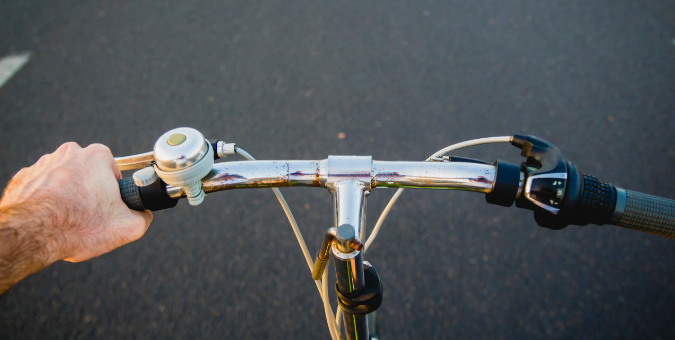
Thursday 4th August is Cycle to Work Day, but what happens if someone is involved in an accident where the driver is cycling for work and more specifically when they use a bike to make deliveries?
For an increasing number cycling is a means of working and earning an income. The pandemic triggered an explosion in the home delivery service industry such as Deliveroo, Uber Eats and Just Eat. Electric bikes or e-bikes have become the preferred mode of transport for delivery as they combine low running costs with speed and efficiency.
For customers this has had attractive benefits – a fast and cheap delivery service which also has less environmental impact than other motorised vehicles. It also appears to be a change that is here to stay with home delivery giant Amazon now jumping on the trend and pledging to replace a good percentage of its van fleet with more eco-friendly methods including e-cargo bikes.
The consequences to road safety
What is not so apparent is what consequence this growing sector is having on road safety – both for delivery riders and other users. Delivery riders cycling through red lights or mounting pavements is an everyday spectacle. They are often young and not wearing a helmet and this type of risk-taking behaviour places them and other road users at risk. The press has already picked up a number of stories around these behaviours and particularly linked to accidents involving pedestrians.
Notwithstanding, collision statistics involving delivery riders in the UK are hard to come by.
Delivery rider vulnerability
A recent pilot study carried out in Australia in one Sydney hospital emergency department between May 2019 and April 2020 identified at least 43 cycling-related injuries among delivery riders. The study found that delivery riders were 13 times more likely than recreational cyclists to present to emergency department between 8pm and midnight.
This might not seem surprising bearing in mind the nocturnal nature of delivery work. The study recommended the categorisation of cycling injuries in hospital records between ‘commercial’ and ‘non-commercial’.
It would make sense that delivery riders are at significant risk. As cyclists they fall into the second most vulnerable road user category as set out in the new Highway Code. They operate in busy urban areas usually at night where lighting and visibility are an issue. Any risk-taking behaviour just adds to the mix.
There is an added vulnerability to delivery riders due to their employment status where as members of what is called the ‘gig economy’ they are treated as being self-employed.
They are expected to fund the purchase and maintain their own e-bike. Paid by delivery or piecework rather than an hourly rate, delivery riders are subject to financial insecurity where wages can often be low and unpredictable.
In 2021 the Bureau of Investigative Journalism undertook a study of pay data for 300 Deliveroo Riders and found that a third earned below the UK minimum wage, with some workers earning as little as £2 per hour on average. Given the present cost of living crisis these pressures will increase. This is unlikely to lead to an improvement in rider behaviours.
What if the delivery rider is at fault?
When a delivery rider is involved in a collision with another vehicle through no fault of their own they can bring a claim against the other driver but what happens when the delivery rider is at fault?
Under UK law e-bikes are known as ‘electrically assisted pedal cycles’ (EAPCs). So long as the e-bike meets the standards set by the EAPC rules there is no requirement for a licence to ride one and it does not need to be registered, taxed or insured.
Currently delivery drivers in the UK are considered by the Courts to be self-employed so there is no recourse against the owners of the platform/app. This means that unless the delivery rider has their own insurance or possess significant assets they will not be able to meet the cost of any claim.
This situation has led to complaints that highly profitable businesses like Deliveroo, Uber Eats and Just Eat should be taking more responsibility for their riders.
Due to the absence of an employer/employee relationship there is no requirement for these platforms to provide road safety/cycling training programmes for the riders on their books.
Interestingly, Deliveroo have started to provide its delivery riders with free public liability insurance cover (up to £1m). The insurance scheme also provides some loss of income protection in the event of a rider sustaining an injury whilst at work. This is a positive step.
What if you have been injured?
If you have been involved in an accident caused by the reckless driving of a delivery bike / e-bike that has caused an injury to yourself or your property, you may be entitled to compensation.
As bikes do not have number plates it is important you try to get as many photographs of the accident scene and documentation around the accident itself as you can. Likewise having witnesses and exchanging details with them so they can be called upon can be really important.
You will need to speak to a specialist solicitor that knows this area of the law very well as they may have to contact multiple parties to gather information for your claim. In some cases they will have to hire an investigator to establish if the driver that caused your injury would have enough funds to be able to pay for your compensation.
In these cases that delivery drivers are covered by insurance schemes like the Deliveroo drivers are, your solicitor will liaise directly with them to support your claim.


















